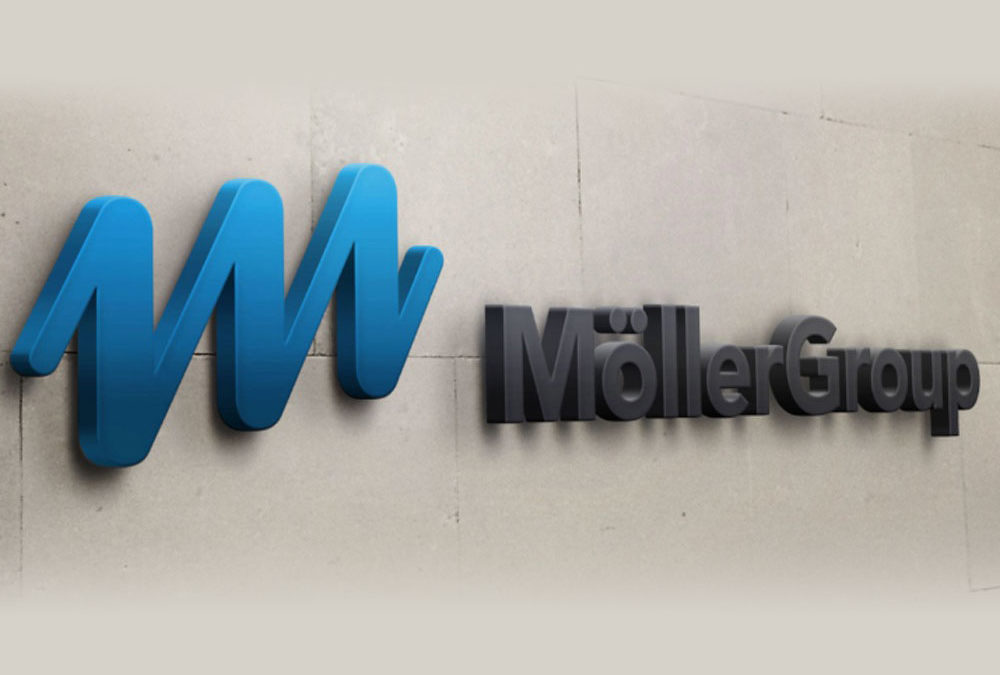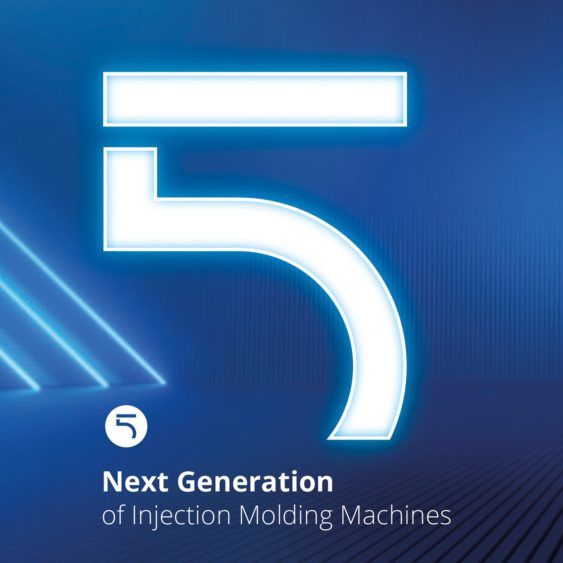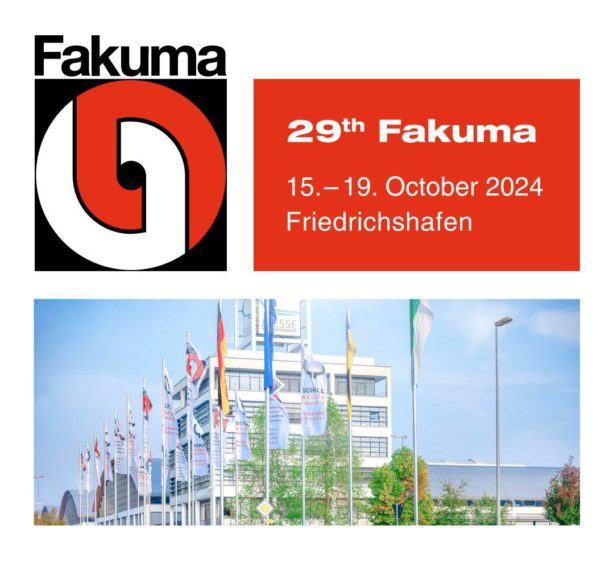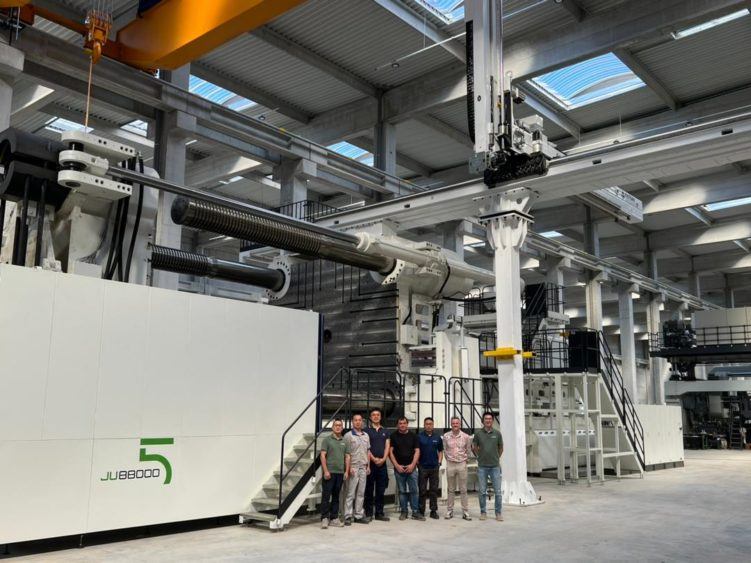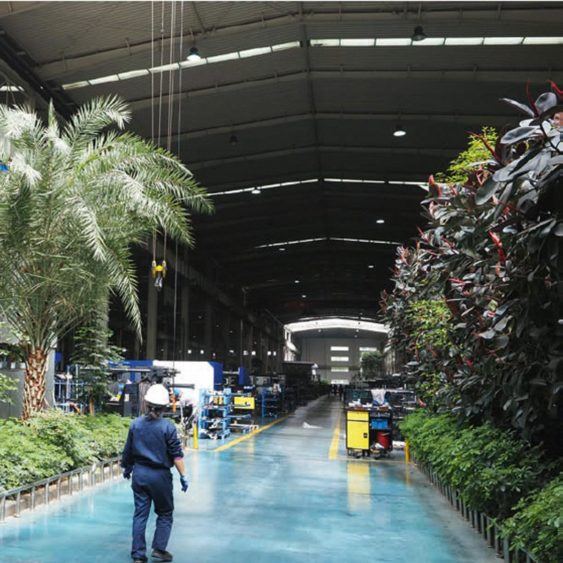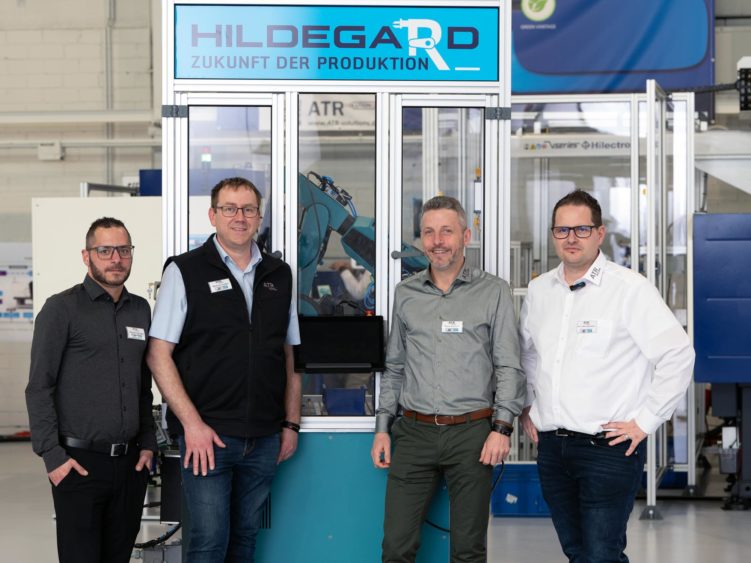The MöllerGroup’s successful balance between economy, innovation and flexibility
Founded in 1730 and headquartered in Bielefeld, Germany, the MöllerGroup is a renowned premium partner for plastic parts in the automotive industry and one of the big players in the global automotive industry. The Group is also firmly established in the mechanical engineering, agricultural and rail vehicle sectors. The company stands for expertise, flexibility and speed, with great passion and creativity for technical solutions.
We spoke to Torsten Nowak, Director Group Purchasing MöllerGroup, Thomas Herf, Purchase Manager MöllerTech and Reinhold Ganzer, Key Account Manager at Haitian International Germany, about challenges in the automotive industry, corporate culture, sustainability and why “Made by People” is so important to the MöllerGroup.
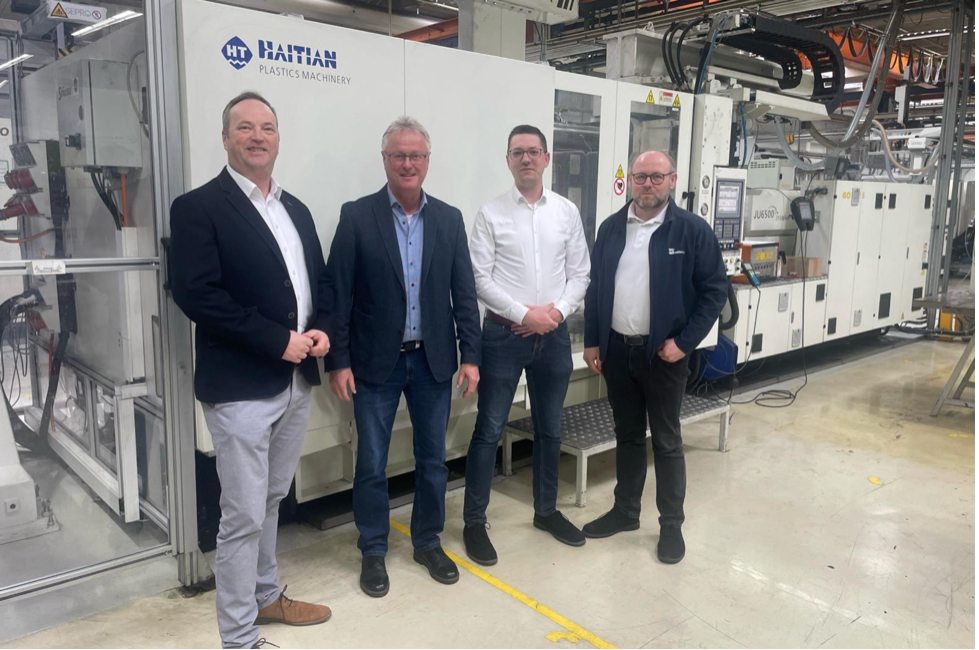
(from left) Torsten Nowak, Reinhold Ganzer, Thomas Herf and Jakob Weitz in front of a two-platen Haitian Jupiter machine, one of 47 machines now installed at the Möller Group.
The Möller Group has been working with Haitian for more than 20 years now, and it’s a close and intensive partnership. How do you see the cooperation yourself, is there a secret to its success?
Torsten Nowak: “Basically, Haitian and the Möller Group have been working together since 2012. Initially, there were a few starting difficulties, which caused us a lot of concern at the time. But at the time, the CEO of Haitian in Germany reacted very quickly and consistently, and was also very accommodating. That was very generous and impressed us to a certain extent. Haitian did its homework and rectified the weak points. Lessons learned. Then came the next Generation 3 and they were back in the race.”
How many Haitian machines are running in the MöllerGroup today?
Thomas Herf: “So far there are 47 machines in total, spread across all locations worldwide. We mainly use the Jupiter, but also the Mars series and two electric Zeres machines, with clamping forces ranging from 150 to 1,850 tons.”
The Mars is also at the center of the latest project, right?
Herf: “Yes, we are getting a Mars 200 for MöllerFlex. For the first time with a V1300 robot plus production cell from Smart Solutions – our first Hilectro robot, so to speak.”
Will the MöllerGroup focus more on automation in the future or will it remain more of a supplement to “Made by People”?
Nowak: “For me, our mission statement “Made by People: Dynamic, Different, Dedicated” really embodies the essence of our company. We have given it a lot of thought because it is an important aspect of our culture.
And, of course, we need to keep our production processes flexible. By integrating new technologies – as well as new, creative approaches and effective processes – we always want to have the opportunity and be able to actively exploit synergies and dynamically adapt to new requirements. To guarantee our ability to deliver, but also to react to changes in customer call-off behavior.”
Herf: “Sometimes, especially in Europe, this means that we temporarily stop production for a week or a weekend. This requires close coordination with the scheduling of the customer production plants, as flexibility is a top priority for us.”
Nowak: “I would like to add that our philosophy is based on the three core characteristics of dynamics, difference and dedication, based on the Kaizen method. We have developed them further as “MöllerEconovation”. This implies a high degree of flexibility and the ability to react quickly to necessary changes. Sometimes it means relying heavily on the human factor to achieve this flexibility. A high degree of automation can sometimes lead to less flexibility, so we strive for a balanced approach. Our strategy aims to keep flexibility high, even if this means sacrificing automated processes. We often have controversial discussions to find the best solution.”

MöllerGroup is one of the big players in the global automotive industry
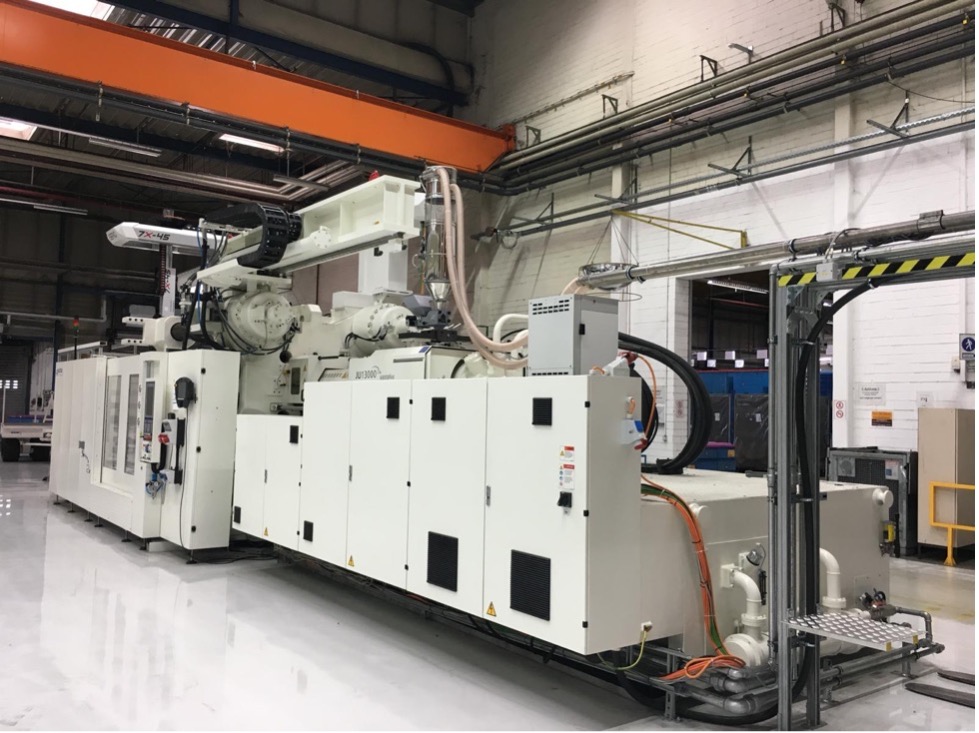
So far there are 47 Haitian machines in total, spread across all locations worldwide.
Flexibility versus productivity – how do you solve this in concrete terms in the plant, in daily practice?
Nowak: “In reality, this means that we are prepared to overcome challenges. Uninterrupted production is not our main goal. We deliberately keep our stock levels low and sometimes deliberately provoke unrest in order to make problems and inefficiencies quickly visible. This is characteristic of our approach and shows our willingness to make frequent adjustments in order to remain flexible.”
To what extent do you also expect this flexibility to adapt from the machines?
Herf: “The machines have to be robust in order to cope with the frequent changeovers. We have frequent tool changes and many set-up processes, so everything has to work smoothly. The Mars and the Jupiter are the most uncomplicated machines in our plants.”
Nowak: “This can sometimes seem unconventional from the outside, but it is an essential part of our strategy. I believe that this high level of flexibility will ultimately be a decisive factor in our future competitiveness.”
What do you expect from Haitian as a supplier?
Herf: “Accessibility. For example, we need an emergency plan for spare parts, with availability within 24 hours. Also global availability, with contact persons who speak English.”
How do you rate the collaboration with Haitian in terms of trust, availability and service?
Nowak: “I particularly appreciate the way in which we interact and this unique blend of familiarity and professional seriousness. When I’m in Ebermannsdorf, for example, I feel this sunny, Chinese atmosphere, which forms an impressive symbiosis with the solid, Bavarian seriousness and reliability.”
Herf: “What particularly impresses me in our cooperation is the energy and power with which projects, such as the plant in Serbia, are realized in such a short time. This dynamic Chinese energy, coupled with efficient implementation, is remarkable.”
Ganzer: “Haitian and MöllerGroup – this has been an intensive partnership for many years, based on mutual trust and constructive criticism. Service and availability have to be right, of course. But apart from that, both are also involved in the development process of each other. In some cases, Haitian is involved at a very early stage and can design the machine in a customized way, and conversely, the MöllerGroup has many requirements or suggestions, some of which have already been incorporated into a our series.”
Nowak: “I think that is also a key aspect. When you work with Haitian, you have a strong partner at your side. This partnership is based on mutual trust and efficiency. Both empathy and criticism have their place in established partnerships, and that’s a good thing.”
The perfect transition to sustainability. Energy efficiency is undoubtedly a decisive factor for your company. It would be interesting to know what measures you have introduced in recent years, especially in the last two to three years. How strong is your focus on energy efficiency?
Nowak: “As a plastics processing company, we are at the heart of decarbonization, especially with our large-volume machines and the materials we use. We are aware of this responsibility and we are committed to it. This applies in particular to the automotive sector, where premium brands set ambitious sustainability targets that we integrated into our corporate strategy at an early stage.”
Herf: “When purchasing energy and using solar systems, we attach great importance to ensuring that energy efficiency and CO2 reduction are part of our procurement strategy. This applies both to the direct energy consumption of our capital goods and injection molding machines as well as our commitment to CO2 neutrality. Our purchasing strategy is driving these issues forward. We have a committee that brings together different perspectives such as purchasing, engineering, project management and risk management. An important aspect of this is to analyze in more detail what the actual energy consumption and CO2 footprint look like.”
Nowak: “We have our own sister company, Möller Real Estate, which takes care of energy management and the energy efficiency of building technology.”
With regard to recycling: do you have a specific quota for the use of recyclates in your production?
Nowak: “We pursue two approaches: Reducing the use of materials in production and increasing the purchase of recyclates. However, we have to adhere to the specifications of our customers, who often demand original materials. We strive to have our own recycling processes, but are also restricted by customer specifications. The question is whether customers should be more open to recyclates. We are working closely with large chemical companies and discussing how recyclates can be offered at an affordable price without compromising quality.”

